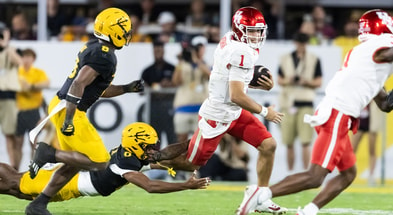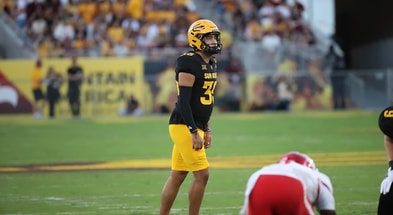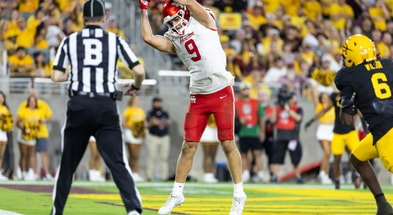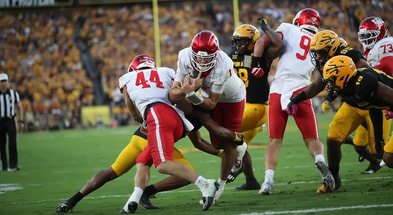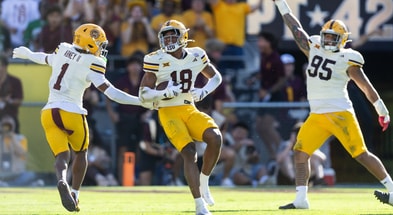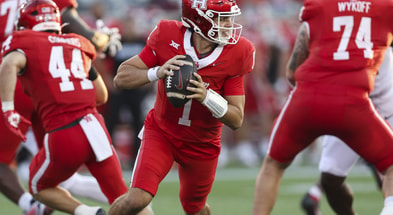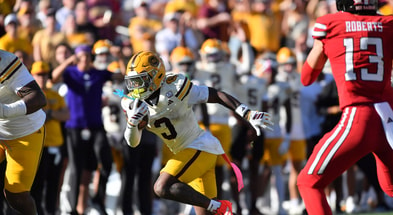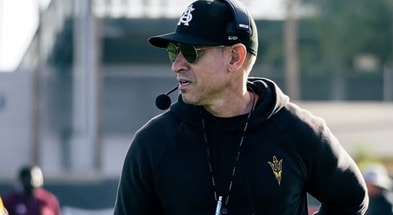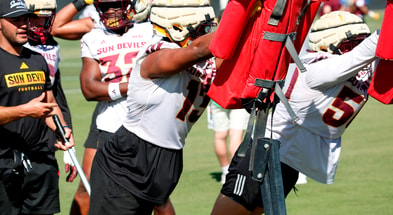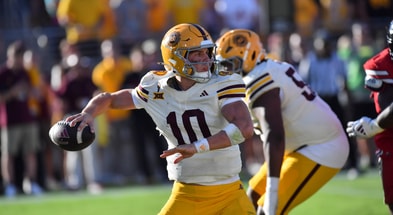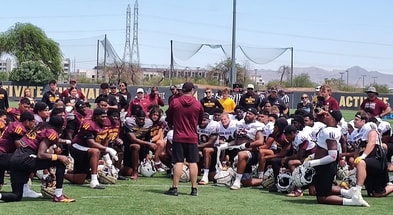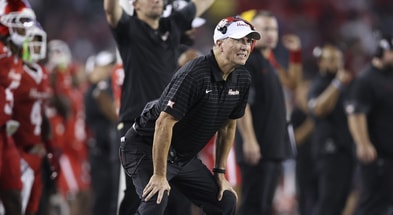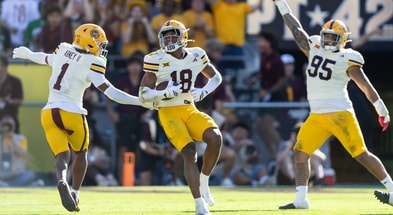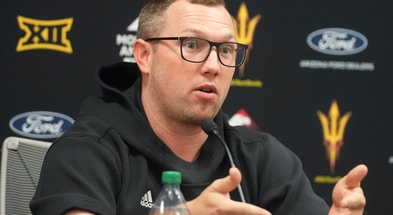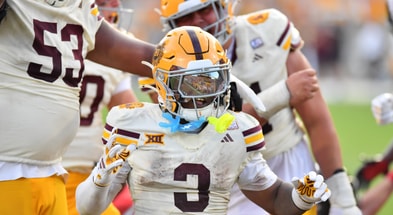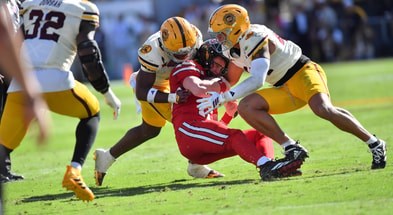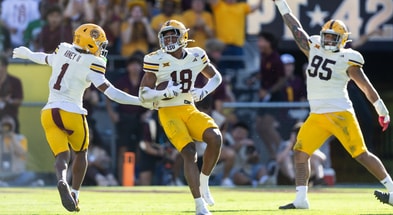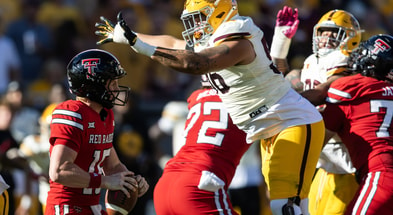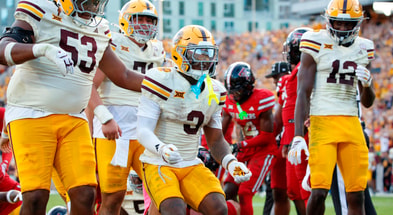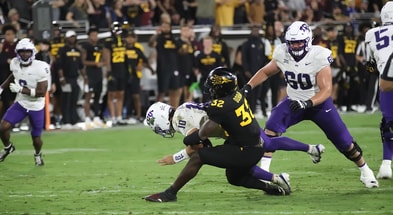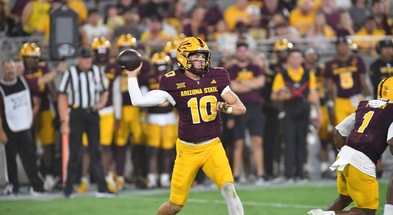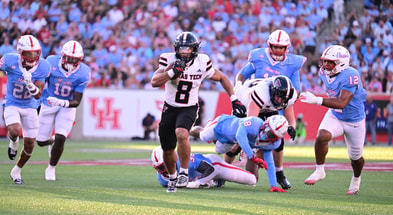Self-sabotage and penalties cost ASU in home loss to Houston
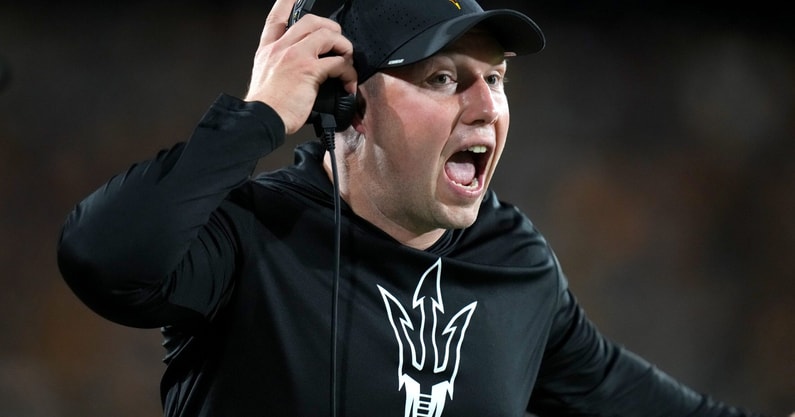

Frustration had reached a boiling point. ASU was playing some of its sloppiest football of the season, and the fans had seen enough. Every drive seemed cursed by another yellow flag, another momentum killer. When the eighth penalty of the night came on a pass interference inside the ASU 10, the tension finally snapped. Every big moment felt stolen—holding, pass interference, illegal shifts—the same story repeating over and over.
The crowd erupted. Bottles flew, and the yellow towels handed out before kickoff became instruments of protest. Fans hurled them onto the field as if to mock the relentless officiating. If the refs were going to throw flags all night, why not pitch in? Then came another gut punch: a targeting call on senior defensive back Myles Rowser. More flags. More debris. More disbelief. By that point, it felt less like a football game and more like a chaotic comedy of errors, one yellow flag at a time.
That chaos defined the night. ASU’s offense went scoreless through three quarters, unable to build rhythm as 12 penalties for 76 yards erased chance after chance. A touchdown wiped out. A turnover nullified. A missed Houston field goal was taken off the board. Each self-inflicted wound deepened the frustration, leaving Mountain America Stadium heavy with embarrassment. When the final whistle blew, Houston (7-1, 4-1 Big 12) had pulled off a 24-16 upset over No. 24 ASU (5-3, 3-2 Big 12), a night lost to mistakes, emotion, and a sea of yellow flags.
It would have been easy to blame the offense, especially on a night when ASU struggled to move the ball. Down 24-0 before showing signs of life, any hope of a comeback was buried before it began. But the real story ran deeper: a relentless string of penalties that crushed the return game and erased momentum before it could take hold.
“We have to play better all across the board,” head coach Kenny Dillingham said. “We have to be better as a football team. We didn’t play well enough as a football team tonight. (Special teams) was one of the phases that didn’t play well enough, but all the phases have to play better.”
Four of ASU’s 12 penalties came on special teams, each snuffing out a spark that might have shifted the game’s tone. Early in the first quarter, with Houston already up 10-0, sophomore wide receiver Jaren Hamilton broke free for a 29-yard kickoff return, called back for holding. In the second quarter, redshirt freshman Zechariah Sample weaved through defenders for a 29-yard punt return, only to see it wiped away and pushed back to the ASU 9. To open the third, Hamilton ripped off another 29-yard return, nullified again by holding. Three sparks. Three drives extinguished before they could breathe.
Even when ASU finally managed a drive not erased by special teams mistakes, they found ways to sabotage themselves. Down 17-0, it looked like the Sun Devils might claw back. Redshirt sophomore quarterback Sam Leavitt seemed to answer the call, hitting redshirt senior tight end Chamon Metayer in the end zone. A touchdown, a chance to swing momentum—until the flag appeared for an illegal shift. Just like that, a touchdown became 1st-and-15, a drive that had promised a TCU-like comeback instantly derailed.
“We have to get set,” Dillingham said. “That’s on us as a staff, not making sure guys know where they’re supposed to be, getting set, and before the motion, getting guys set. It was an illegal motion. It didn’t have any effect on the play, but it was a penalty 100 percent. It was unfortunate. We can’t have it, and that’s on myself to not let those things happen because there’s easily 10 points in that game just off that play alone.”
The penalty led directly into a 42-yard field-goal try by redshirt senior kicker Jesus Gomez—a miss, one of two on the day. Earlier, a 31-yard attempt had sailed wide after a high snap, forcing desperate adjustments throughout the night. By the time the points finally arrived, the early mistakes had dictated the game’s rhythm entirely.
The yellow flags did more than steal yards; they reshaped the contest. ASU allowed 384 yards of total offense, but just two defensive penalties turned potential stops into easy touchdowns. Early in the first quarter, ASU seemed to catch a break when junior quarterback Conner Weigman fumbled at the goal line and redshirt senior Justin Wodtly recovered. For a fleeting moment, the defense had delivered. Then came the dreaded yellow: offsides on Rowser, followed by unsportsmanlike conduct.
The turnover vanished, and one play later, Weigman punched it in. It was a brutal illustration of how quickly the Sun Devils’ momentum could be ripped away—and how Saturday had become a harsh reminder that ASU couldn’t catch a single break.
By the third quarter, disbelief had replaced anger. The crowd had already erupted over the 3rd-and-5 pass interference on junior defensive back Keith Abney II, tossing items onto the field in frustration.
Then came another blow: Rowser was hit with a targeting call on the very next play, ending his night and, because it was a second-half targeting, suspending him for the first half against Iowa State. What had seemed like a meaningless, garbage-time penalty now carried serious consequences. One play later, Weigman sneaked it in again to make it 24-0.
To cap it all, after ASU turned the ball over on downs deep in Houston territory—seemingly sealing the game despite a late comeback attempt with the score 24-16—the Cougars moved to ASU’s 7-yard line. They lined up for a 25-yard field goal to ice it, only for senior kicker Ethan Sanchez to shank it left, leaving a slim spark of hope. But the chaos wasn’t finished. Redshirt junior defensive back Javan Robinson was flagged for roughing the kicker, giving Houston a perfect opportunity to capitalize on a day where no play seemed safe from a flag.
Dillingham called the special teams mistakes and penalties a “combination of everything,” even taking responsibility for the final field-goal penalty. But the blame extended beyond him. On a night when ASU needed every advantage, they got the opposite—gut punch after gut punch erased comeback attempts and crushed any hope of flipping momentum. Twelve penalties might be survivable against NAU, but against a 7-1 Houston team in a competitive Big 12, they were almost always going to mean defeat.
“We didn’t play good enough to win,” Dillingham said. “…You got to look at the facts, and the facts are, we lost turnover battle, we had too many penalties, we lost field position, we couldn’t stop the plus one run game.”

